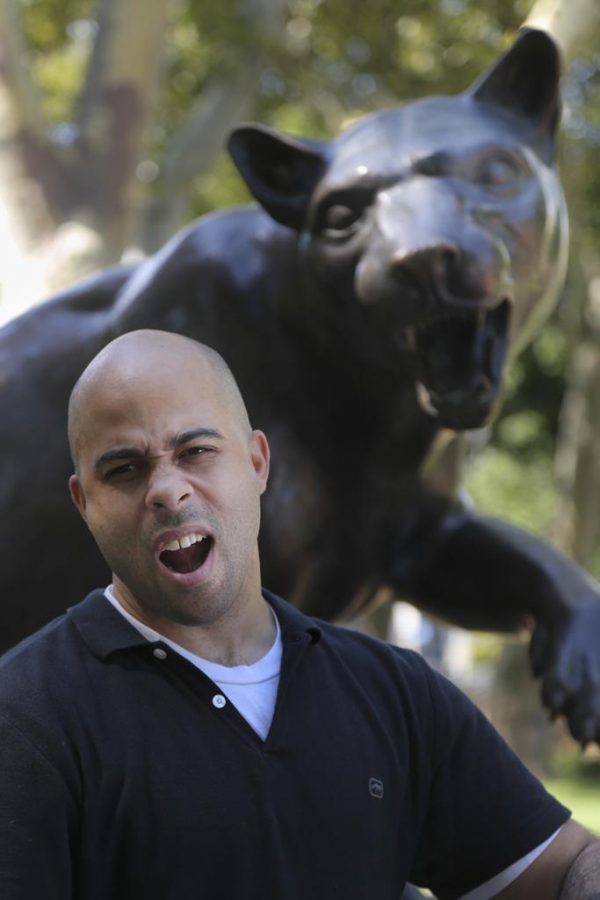With the class of 2020 rolling in, many students may be concerned with how they are going to handle and navigate their first year. But just as caught up in big transitions are the people who will eventually educate those students.
Natasa Miskov-Zivanov, of the Electrical and Computer Engineering and Bioengineering Departments, came to Pitt in January. She performed her postdoctoral work at Pitt years ago but has only been teaching at the University as an assistant professor since last spring semester.
“In terms of my new experience, since I joined as a faculty in January, the departments — I hold positions in [Electrical and Computer Engineering, Bioengineering and Computational and Systems Biology] — have all been very welcoming and extremely helpful,” Miskov said.
Miskov is very familiar with the city of Pittsburgh as she’s been here since 2003, attending university, though not at Pitt. She received her master’s and doctorate in Computer and Electrical Engineering from Carnegie Mellon University, but mentioned what attracted her to the University of Pittsburgh was the “amazing opportunities for collaboration.”
The allure of Pitt’s intellectual and social network also attracted Keith Kirk, who will join the Theatre Arts Department this fall.
Kirk, a bit of a nomad, was born in South Bend, Indiana, but raised in Oakland, California. His acting career took off in Chicago at the prestigious Steppenwolf Theatre Company, which eventually led him to Broadway.
He began thinking about returning to school after 9/11 and eventually received his MA in Performance Studies and Playwriting from New York University’s Gallatin College and his doctorate at Northwestern University in its Theatre and Drama Program. Kirk said as an actor, collaboration is naturally part of what he does in his day-to-day life and he thinks university education should be approached with a similar mindset.
“People forget the collaborative aspect of university education and it may not be as prevalent in other departments, but in theatre arts and education the making of theatre is collaborative,” Kirk said. “We do that very well. So that’s my advice [for incoming professors and students]: seek out the collaboration.”
Unlike Miskov, Kirk is brand new to Pittsburgh and says he is excited to explore the campus as well as the city he will be calling home. That excitement is due, in part, to his connection with August Wilson, Pittsburgh’s most famous playwright, whose work has given Kirk a special view of the city.
“The second show that I worked on [on] Broadway was August Wilson’s ‘The Piano Lesson,’” Kirk said. “Since August Wilson is from Pittsburgh, I’m like a kid in a candy store looking at things and neighborhoods and reaching for an embodied experience attached to these plays. The city itself makes me ask so many questions, and I want the time to answer them.”
Even for those not picking up to move across the country, finding support from within the Pitt community has been integral to building stable new lives.
Samuel Dickerson, originally from the East End/Wilkinsburg area, is a native of the city and also an alumnus of Pitt. He completed his bachelor’s in Computer Engineering as well as his MA and doctorate in Electrical Engineering at the University and has been teaching in the Electrical and Computer Engineering Department since last fall.
He also just became a father.
“New job, new lifestyle, new responsibilities and a baby,” Dickerson said about his transition. “I had my first child one week before I started. So that added to the insanity. I was working 20 hours a day, cooking, cleaning, coming here at midnight [to] work through the night.”
Considering his hectic schedule, Dickerson said his transition was much smoother with the aid of the faculty within his department.
“Mentorship is pretty important. I know it varies across department and school but my department has been very supportive, especially the senior faculty.”
Still, no amount of workplace support can add hours to the day. According to Dickerson, being a professor is like being a student in that regard: you have to insert structure into what is an otherwise unstructured job.
“We don’t punch into a clock,” Dickerson said. “We are not turning a time card into someone. You have to be very self-organized and insert that structure yourself.”
His advice for students and new instructors alike is simple and well-worn.
“Learn how to manage your time wisely,” Dickerson said. “Because your schedule will get filled up with many, many things from many, many people, and you want to make sure you have enough time for yourself and for your responsibilities and goals.”
Now that he’s the one behind classroom podiums, Dickerson is finding a new layer of fulfillment from education. As a Pitt alum, Dickerson said he still feels a connection to Pitt and his days as a undergraduate.
“The students I am teaching now, I was in their position years ago,” Dickerson said. “It makes me really happy to see the students succeed. It’s like looking in the mirror.”


